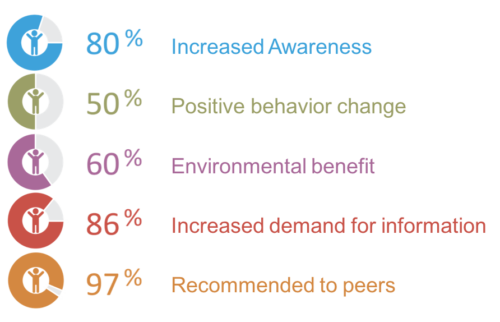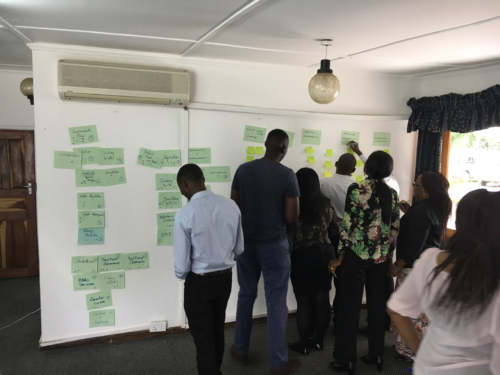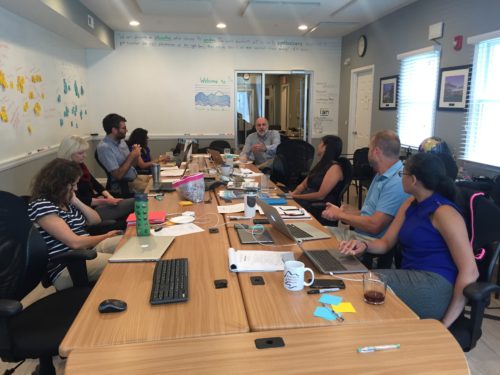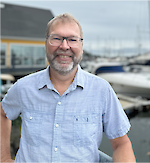Focusing on outcomes: What are we really shooting for?
Heath Kelsey ·The Healthy Rivers for All Partnership spent some quality time last week brainstorming about how our report card projects are perceived. We take it for granted that the report card process increases engagement and leads to great outcomes. We talk about how great report cards are all the time, and we believe it!

But focusing on the report card doesn’t always seem to resonate. When people think “Report Card”, they probably think of a thing – a document with a grade on it. Even if it addresses a range of social, economic, and cultural factors, the report card itself is still just a document. A thing that represents the physical output of the assessment.
The positive outcomes we’ve documented are not achieved because of a product that is the output of a project, but because of the process we go through to develop it. The process fully engages a diverse set of stakeholders to create every part of the project, including the scope, values and threats assessment, indicators selection, data analysis and interpretation, communication of results, and ways to raise the grade. This level of engagement creates new opportunities for stakeholders to hear different perspectives and create new collaborations. We believe that this is how we achieve positive results, and why participants think the process is valuable.

The creative juices were flowing as we all created our own And, But, Therefore statements about this shift in the way we talk about what we do. Most of the results tended toward a similar structure, which focused on the importance of water, barriers toward sustainability, and the need for collaboration and engagement. Merging the various bits and pieces, I come up with something like:
Healthy rivers are critical to providing water resources for people and nature. But competing uses, non-transparent decision-making, climate change, growing populations, lack of engagement, and poor management often lead to poor outcomes, often at the expense of vulnerable populations and ecosystems. Therefore, we need new pathways to sustainable, balanced water use. The Healthy Rivers for All Partnership has a proven, systematic, and collaborative approach to stakeholder engagement that enables robust decision for long-term management and allocation of water resources that allows people to live in harmony with nature.

Although this statement will be undoubtedly be revised, I hope it represents a start toward changing the way people think about report cards. They are so much more than a document.
About the author
Heath Kelsey

Heath Kelsey has been with IAN since 2009, as a Science Integrator, Program Manager, and as Director since 2019. His work focuses on helping communities become more engaged in socio-environmental decision making. He has over 10-years of experience in stakeholder engagement, environmental and public health assessment, indicator development, and science communication. He has led numerous ecosystem health and socio-environmental health report card projects globally, in Australia, India, the South Pacific, Africa, and throughout the US. Dr. Kelsey received his MSPH (2000) and PhD (2006) from The University of South Carolina Arnold School of Public Health. He is a graduate of St Mary’s College of Maryland (1988). He was also a Peace Corps Volunteer in Papua New Guinea from 1995-1998.

